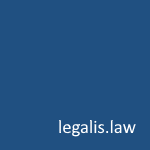Understanding the Ins and Outs of UK Debt Recovery Lawsuits
Debt recovery lawsuits play a pivotal role in the financial landscape of the United Kingdom, offering creditors a legal avenue to pursue outstanding debts. Navigating the intricacies of these legal proceedings is crucial for both creditors and debtors. In this comprehensive guide, we’ll delve into the key aspects of UK debt recovery lawsuits, shedding light on the process, regulations, and essential considerations.
I. Overview of UK Debt Recovery Lawsuits:
Debt recovery lawsuits in the UK are legal actions initiated by creditors to reclaim outstanding debts from individuals or businesses. These lawsuits are governed by a robust legal framework that ensures fair treatment for both parties involved. The primary objective is to enforce the repayment of debts through legal means, protecting the rights of creditors while maintaining a balanced approach to debt resolution.
II. Initiating the Legal Process:
The debt recovery process typically begins with a formal demand for payment. Creditors may send letters or notices, urging the debtor to settle the outstanding amount within a specified timeframe. If these initial attempts prove futile, creditors may escalate the matter by initiating legal action. Filing a claim with the appropriate court is the next step, outlining the details of the debt, the amount owed, and the legal basis for the claim.
III. County Court Judgments (CCJs) and Their Impact:
One of the most significant outcomes of a debt recovery lawsuit is the issuance of a County Court Judgment (CCJ). A CCJ is a court order that confirms the debtor’s liability to repay the debt. It also specifies a repayment schedule, allowing the debtor to settle the debt in installments. CCJs are recorded in a public register, affecting the debtor’s credit rating and making future credit applications challenging.
IV. Legal Procedures for Debt Recovery:
The legal procedures involved in debt recovery lawsuits are well-defined in the UK. Once a claim is filed, the court serves the debtor with the necessary documents, providing them an opportunity to respond. If the debtor fails to respond or disputes the claim, the court may issue a judgment in default. However, if the debtor contests the claim, the case may proceed to a court hearing, where both parties present their evidence and arguments.
V. Enforcement Methods:
Obtaining a judgment is just the first step; enforcing it is equally critical. The UK offers various enforcement methods to creditors, including:
a. Warrant of Execution: This allows bailiffs to seize the debtor’s assets to cover the outstanding debt.
b. Charging Order: This places a charge on the debtor’s property, which can be realized when the property is sold.
c. Attachment of Earnings: This involves deducting repayments directly from the debtor’s wages.
d. Third-Party Debt Order: This freezes funds in the debtor’s bank account, redirecting them to the creditor.
Understanding these enforcement methods is essential for creditors seeking to recover their debts effectively.
VI. Defense Strategies for Debtors:
Debtors facing a debt recovery lawsuit have the right to defend themselves. They can dispute the claim on various grounds, such as challenging the amount owed, asserting a dispute over the debt, or claiming financial hardship. Seeking legal advice and understanding their rights is crucial for debtors to mount a strong defense and potentially negotiate more favorable repayment terms.
VII. Time Limits and Statute-Barred Debts:
UK law imposes time limits on pursuing debts through legal action. If a creditor fails to initiate a lawsuit within the specified time frame, the debt becomes “statute-barred,” meaning legal action can no longer be taken. Understanding these time limits is crucial for both creditors and debtors, as it can impact the validity of a debt recovery lawsuit.
VIII. The Role of Legal Professionals:
Navigating the complexities of debt recovery lawsuits in the UK often requires the expertise of legal professionals. Solicitors specializing in debt recovery can provide invaluable assistance, ensuring that the legal process is followed accurately and increasing the likelihood of a successful outcome for creditors.
IX. Alternatives to Litigation:
While debt recovery lawsuits are a potent tool, exploring alternative methods can be beneficial for both parties. Mediation, negotiation, and debt settlement are avenues that allow creditors and debtors to find mutually agreeable solutions outside the courtroom. These alternatives can save time, reduce legal costs, and foster a more amicable resolution.
Conclusion:
Understanding the ins and outs of UK debt recovery lawsuits is essential for anyone involved in the debt recovery process. Creditors must be aware of their rights, legal options, and the potential challenges they may face. Debtors, on the other hand, need to understand their defenses, time limits, and the repercussions of legal action on their financial standing. Whether pursuing or defending against a debt recovery lawsuit, seeking legal advice is a prudent step to ensure a fair and just resolution in the complex landscape of UK debt recovery laws.
- Published in Direct Access Litigation
Navigating Debt Litigation in the UK: A Comprehensive Guide
Debt litigation is a complex and challenging aspect of financial management, impacting individuals and businesses across the United Kingdom. Understanding the intricacies of debt litigation is crucial for navigating the legal landscape and safeguarding your financial interests. In this comprehensive guide, we’ll delve into the key aspects of debt litigation in the UK, covering everything from the legal processes involved to strategies for effective resolution.
Overview of Debt Litigation in the UK
To begin, let’s explore the fundamental concepts of debt litigation. Debt litigation encompasses legal actions taken to recover unpaid debts. This can involve a range of scenarios, from individuals facing personal financial challenges to businesses dealing with clients or partners in default. In the UK, debt litigation typically proceeds through various legal channels, including county courts, High Court, and specialized debt recovery procedures.
Initiating Legal Action for Unpaid Debts
When traditional debt recovery methods prove ineffective, pursuing legal action becomes a viable option. Filing a claim in the county court is a common starting point for debt litigation in the UK. This process involves submitting a claim form outlining the details of the debt owed. Once the claim is accepted, the court issues a County Court Judgment (CCJ), providing a legal basis for debt recovery.
Understanding County Court Judgments (CCJs)
CCJs play a pivotal role in debt litigation, influencing the course of legal proceedings. We’ll explore the different types of CCJs, their implications, and the steps creditors can take to enforce them. Additionally, we’ll discuss the potential impact of CCJs on credit ratings and the importance of responding promptly to avoid severe consequences.
Debt Enforcement Procedures in the UK
Having obtained a judgment, creditors can proceed with debt enforcement to recover the owed amount. This section will detail various enforcement methods, including warrant of execution, attachment of earnings, and charging orders. Understanding these procedures is essential for both creditors seeking repayment and debtors seeking to protect their assets.
Bankruptcy and Individual Voluntary Arrangements (IVAs)
In cases of severe financial distress, individuals may face bankruptcy, while businesses may consider alternative arrangements such as Individual Voluntary Arrangements (IVAs). This section will explore the implications of bankruptcy and IVAs, providing insights into the legal processes, eligibility criteria, and potential outcomes for both debtors and creditors.
Legal Rights and Protections for Debtors
While much of debt litigation focuses on creditors seeking repayment, debtors also have legal rights and protections. We’ll discuss the importance of understanding these rights, including the limitations imposed by statutes of limitations, protection against harassment, and the potential for negotiating settlements.
Debt Negotiation and Settlement Strategies
Negotiating a settlement can be a favorable outcome for both parties involved in debt litigation. This section will outline effective negotiation strategies, exploring the benefits of reaching an agreement and avoiding protracted legal battles. We’ll also discuss the role of mediation and other alternative dispute resolution mechanisms in achieving mutually beneficial resolutions.
Debt Relief Options in the UK
For individuals and businesses overwhelmed by debt, exploring debt relief options becomes imperative. We’ll cover debt management plans, debt relief orders, and other mechanisms designed to provide financial relief while adhering to the legal framework in the UK.
Navigating debt litigation in the UK demands a thorough understanding of legal processes, rights, and available strategies. This comprehensive guide has aimed to provide valuable insights into the multifaceted world of debt litigation, empowering individuals and businesses to make informed decisions. Whether you find yourself on the creditor or debtor side, a proactive and knowledgeable approach is key to achieving a fair and just resolution in the realm of debt litigation.
- Published in Direct Access Litigation
Debt Enforcement in the UK: What You Need to Know
Debt enforcement in the United Kingdom is a complex legal process designed to recover unpaid debts and protect the rights of creditors. Whether you’re a creditor seeking to recover what you’re owed or a debtor facing potential enforcement actions, understanding the intricacies of the UK debt enforcement system is crucial. In this comprehensive blog post, we’ll explore the key aspects of debt enforcement in the UK, covering everything from the legal frameworks to the various methods employed in pursuing overdue payments.
Legal Frameworks for Debt Enforcement
The UK has established legal frameworks that govern the process of debt enforcement, providing a structured and fair approach for both creditors and debtors. One of the fundamental tools in debt enforcement is the County Court Judgment (CCJ). A CCJ is a court order that confirms a debtor’s obligation to repay a debt. Obtaining a CCJ is often the first step in the enforcement process and requires the creditor to file a claim with the court.
Once a CCJ is granted, the debtor is legally obligated to repay the debt, and the court sets a specific repayment schedule. Failure to comply with the CCJ can lead to further enforcement measures.
Methods of Debt Enforcement
- Charging Orders: A Charging Order is a legal device that places a charge on the debtor’s property, usually their home. This means that if the property is sold, the creditor has the right to claim the proceeds to satisfy the debt. However, a Charging Order does not force the immediate sale of the property.
- High Court Enforcement: In cases where the debt exceeds a certain threshold, creditors may transfer the CCJ to the High Court for enforcement. High Court Enforcement Officers (HCEOs) have broader powers than bailiffs and can seize assets, sell them, and use the proceeds to repay the debt.
- Attachment of Earnings Order: This allows a portion of the debtor’s wages to be deducted at source by their employer and paid directly to the creditor until the debt is settled. The court determines the amount based on the debtor’s income and necessary living expenses.
- Third-Party Debt Orders: This involves freezing money held in the debtor’s bank account or other financial assets. The frozen funds are then transferred to the creditor to satisfy the debt.
- Writ of Control: If a CCJ remains unpaid, a Writ of Control may be issued, allowing enforcement agents to seize and sell the debtor’s assets, excluding essential items. This method is often used for business debts.
Consumer Protections
While debt enforcement mechanisms exist to protect creditors, UK law also provides safeguards for debtors. The Consumer Credit Act, for example, regulates agreements between consumers and creditors, ensuring fairness and transparency. Debtors have the right to challenge unfair practices and seek debt advice from accredited organizations.
Impact of Insolvency
In cases where a debtor is unable to repay their debts, insolvency may be declared. This can take the form of bankruptcy for individuals or liquidation for companies. Insolvency proceedings involve the orderly distribution of the debtor’s assets among creditors. While insolvency can provide relief for debtors, it also has significant consequences, including the potential loss of assets and a negative impact on credit ratings.
Debt Enforcement and Business
For businesses facing outstanding debts, the debt enforcement process can be critical for survival. It’s not uncommon for businesses to encounter cash flow issues, and efficient debt recovery is essential for ongoing operations. Businesses can utilize various debt enforcement methods, including statutory demands, winding-up petitions, and administration orders, to protect their interests.
Statute-Barred Debts
It’s important to note the concept of statute-barred debts, which refers to debts that are no longer legally enforceable due to the passage of time. In the UK, most unsecured debts become statute-barred after six years of inactivity. Creditors should be aware of this limitation and take prompt legal action to prevent their debts from becoming unenforceable.
Debt Enforcement Challenges and Considerations
Debt enforcement is not without its challenges and considerations. It’s essential for creditors to carefully evaluate the cost-effectiveness of pursuing legal action, taking into account legal fees, court costs, and the likelihood of successful debt recovery. Alternative dispute resolution methods, such as negotiation and mediation, should also be considered before resorting to litigation.
Conclusion
In conclusion, navigating debt enforcement in the UK requires a comprehensive understanding of the legal frameworks, methods, and considerations involved. Whether you’re a creditor seeking to recover debts or a debtor facing potential enforcement actions, being aware of your rights and obligations is crucial. Balancing the need for debt recovery with fairness and legality is essential in maintaining the integrity of the UK’s debt enforcement system. If you find yourself involved in debt enforcement, seeking professional legal advice can provide clarity and guidance through the complexities of the process.
- Published in Direct Access Litigation
Debt Recovery Barristers: Choosing the Right Legal Support
Understanding the Role of Debt Recovery Barristers:
Debt recovery barristers specialize in navigating the legal intricacies associated with reclaiming overdue payments. Their expertise lies in employing legal avenues to secure a swift and effective resolution for creditors. Unlike traditional debt collection agencies, barristers are equipped to handle the entire legal process, from initiating legal action to representing clients in court if necessary.
Expertise in Debt Law:
A crucial factor in selecting a debt recovery barrister is their expertise in debt law. Seasoned barristers possess an in-depth understanding of relevant legislations, including the Consumer Credit Act and other legal frameworks that govern debt recovery. This specialized knowledge allows them to craft robust legal strategies tailored to the unique circumstances of each case.
Litigation Experience:
The right debt recovery barrister should have a proven track record in litigation. Experience in court proceedings and familiarity with the judicial system are paramount for navigating the complexities of legal action. A barrister who is adept at presenting a compelling case and negotiating effectively can significantly enhance the chances of a favorable outcome.
Tailored Legal Strategies:
Every debt recovery case is unique, requiring a tailored approach for optimal results. A proficient barrister will assess the specifics of each situation, considering factors such as the amount owed, debtor’s financial status, and any existing agreements. This personalized approach ensures that the legal strategy aligns with the client’s goals and maximizes the likelihood of successful recovery.
Clear Communication:
Effective communication is a cornerstone of successful legal representation. A reputable debt recovery barrister should be transparent about the legal process, potential challenges, and the realistic expectations of the client. Clear communication fosters trust and ensures that clients are well-informed throughout the entire debt recovery journey.
Cost-Effective Solutions:
Cost considerations are integral when choosing legal support for debt recovery. Barristers who offer transparent fee structures and provide a clear breakdown of costs associated with their services contribute to a more transparent and predictable legal process. This allows clients to make informed decisions based on their budget and the potential return on investment.
Reputation and References:
Reputation is a key indicator of a barrister’s competence and effectiveness. Researching reviews, testimonials, and seeking references from previous clients can offer insights into a barrister’s track record. A reputable barrister will be willing to provide references and share success stories related to debt recovery cases they have handled.
Selecting the right debt recovery barrister is a pivotal decision for those seeking to reclaim overdue payments.
The intricate nature of debt law, coupled with the complexities of legal proceedings, underscores the importance of choosing a barrister with the right expertise, litigation experience, and a commitment to tailored, cost-effective solutions. Clear communication and a stellar reputation further distinguish the best debt recovery barristers, ensuring a collaborative and successful journey towards debt resolution. In the pursuit of financial justice, partnering with the right legal support can make all the difference.
How Legalis Law Can Assist recover unpaid invoices now: Specialised Legal Services for Claims up to £10,000
At Legalis Law, our specialisation lies in recovering unpaid invoices up to £10,000. Our online sign-up and information tools facilitate a swift start to your claim.
Initiating a legal claim conveys your commitment to upholding your rights as a business owner. Start your journey now using this form.
In a time when every penny counts, recovering unpaid invoices ensures your business maintains its financial health. With Legalis Law, addressing overdue payments becomes a streamlined process, safeguarding your business’s stability and setting the stage for a prosperous 2024.
- Published in Debt Litigation, Direct Access Litigation



